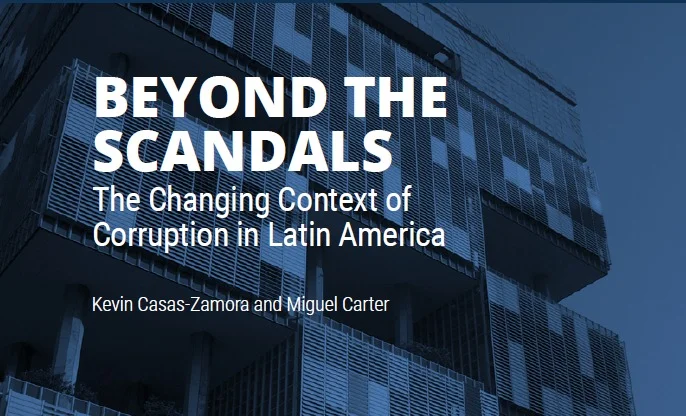In Pursuit of State Transparency
DEMOS research activities have probed issues dealing with public corruption in Latin America and Paraguay. A major engagement in this regard led to a study produced by Kevin Casas-Zamora and Miguel Carter, Beyond the Scandals: The Changing Context of Corruption in Latin America.
Over the past few years, Latin America has seen a surge in corruption scandals. These episodes have led to large demonstrations, prosecutions of government officials and business executives at the highest level, and acute political crises. The recent wave of corruption scandals is arguably unprecedented in its scale, in the swiftness and the severity of the institutional response in some countries, and, above all, in the emergence of large popular movements to demand accountability. What plausible explanations are there for the unprecedented, anti-corruption social and institutional reactions recently seen in Latin America?
The basic contention of this report is that the available evidence provides little support for the notion that the newly-found zeal against corruption in the region is due to a dramatic increase in the corruption levels experienced or perceived. Rather, this report purports to show that the strong social and institutional reactions against corruption recently seen in Latin America are empirically connected to the convergence of five phenomena:
The widespread perception that political and economic institutions in the region are rigged in favor of small elites to the detriment of the majority of the population.
The adoption of transparency and accountability-enhancing reforms throughout the region.
The explosive growth of social media, allowing for faster dissemination of information and lower costs for collective action.
The rapid expansion of middle income groups, who are increasingly politically active.
The region-wide economic downturn of the past few years.
See copies of the publication sponsored by the Inter-American Dialogue (in English) and FUSADES (in Spanish).

